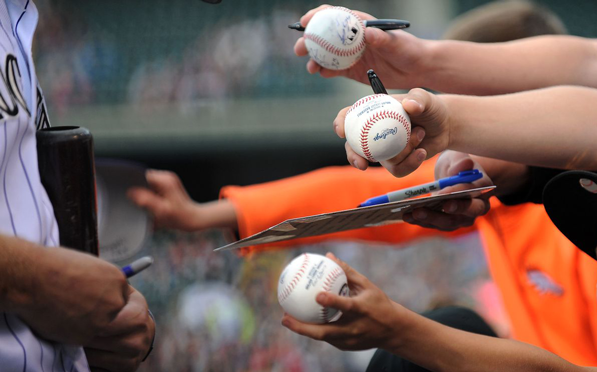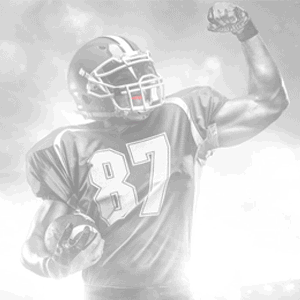Do Professional Athletes Actually Make Good Role Models?

Professional athletes — for better and worse — are role models. It simply comes with the territory.
Maybe it’s because they are larger than life, and closer to super heroes than most other human beings. Maybe it’s because they make millions of dollars and frequently appear on television. Maybe it’s because most children dream of playing in the pros.
Whatever the reason, kids and fans alike look up to their favorite players and aspire to be like them. But is that a good thing?
In some senses yes: professional athletes have reached the pinnacle of their sports because of their hard work and lifelong determination, and those are character traits that should be emulated. Athletes are able to do things that are seemingly unthinkable on the field, court or ice, and young athletes should aim to reach and eventually exceed those levels.
What’s more inspiring than seeing your favorite player hit a game-winning shot, or someone overcome adversity to achieve greatness, or watch a team come together for a miraculous championship run? It’s hard not to idolize those athletes and desire to be just like them.
However, with the advent of social media and an unhealthy obsession with sports, professional athletes are now perpetually under a microscope. That means everything they do and say is scrutinized, which shines a light on the stuff that isn’t considered to be “role model” behavior.
A Great Price
With six different styles to choose from, there is a perfect Gladiator waiting to lead you into battle starting at $45.
Just take the recent NFL draft and the first round drop of Ole Miss offensive tackle Laremy Tunsil. Why were teams so afraid to take the long-presumed best player in the draft? Because a video surfaced right before the first round kicked off, showing a player with, among other things, character issues.
The NFL has recently been trending away from players with off-the-field issues, as players with domestic, drug and even homicide issues have left a black mark on the country’s most popular sport. Those players aren’t good role models and they aren’t good PR for the league.
Here’s the problem though: why would we expect these athletes to be model citizens? Especially in a violent sport like football that has historically featured eccentric and overly aggressive players both on and off the field. Besides having superior talent, what makes these players great role models for young kids? Why shouldn’t children look up to people in their community who volunteer, or teach or give to others?
We actually unconsciously force athletes into being role models and then expect more from them. But realistically, are 19 and 20-year old kids thinking about how their actions appear to the public when they are worried about being drafted or learning the next level?
Athletes are simply the best at their profession — no different from an elite accountant or doctor. The only difference is doing taxes and performing surgeries aren’t spectator sports with huge television contracts.
On the other hand, athletes are paid handsomely for their talent; but they are also under contract to be part of a community and represent a city and team. In a way, they owe it to their employers to be upstanding citizens and role models for the community. After all, being a pro player is a privilege, not a right.
There is nothing wrong with young fans looking up to professional athletes, but those aspirations may be best left to what that player achieves on the field, court or ice. That’s how the next generation of great athletes is born.
Just because someone has superior athletic ability doesn’t mean that they are a good person. Having awareness, empathy and performing selfless acts does.
We tend to automatically make professional athletes role models for kids and fans, but are we asking too much from them? Is it right for young players? What do you think?




 Professional athletes — for better and worse — are role models. It simply comes with the territory.
Professional athletes — for better and worse — are role models. It simply comes with the territory.

hi
Mr. Armideo,
I am currently as Senior at Floyd Central High School in southern Indiana and am undergoing the process of conducting my senior paper/speech, and my societal topic involves whether athletes should be considered role models! I read your article and have many points that I agree with. I’d love to know if you’d answer a few personal questions for me regarding why you wrote this article, whether or not there could be any serious damage given to a child in the result of following a “bad” athlete, and others such as that. My email is Ripster9242aol.com and I’d love to hear back as soon as you can!
Thanks again,
Kelby Rippy
Hi Kelby. I will be happy to help you in any way I can and will reach out soon.